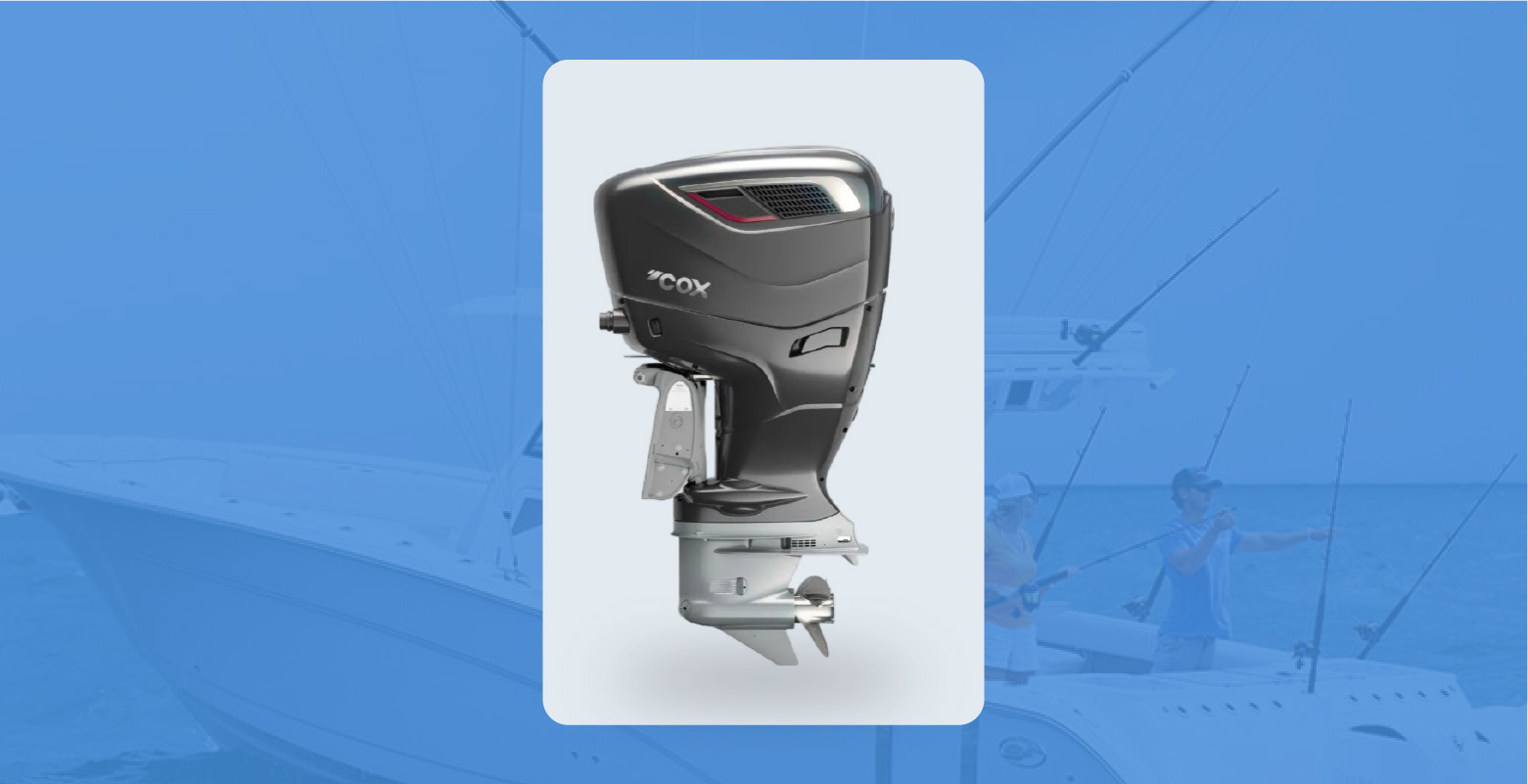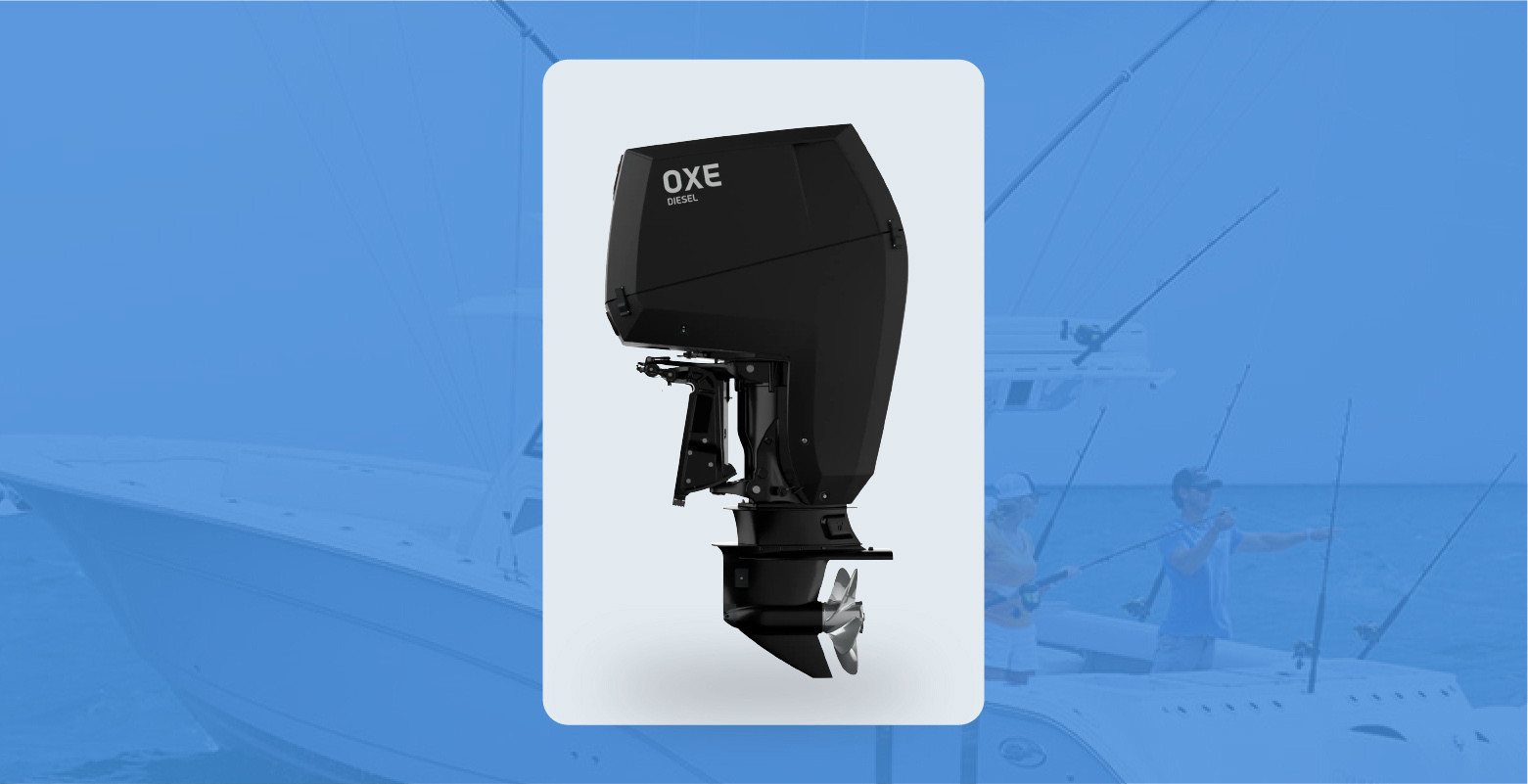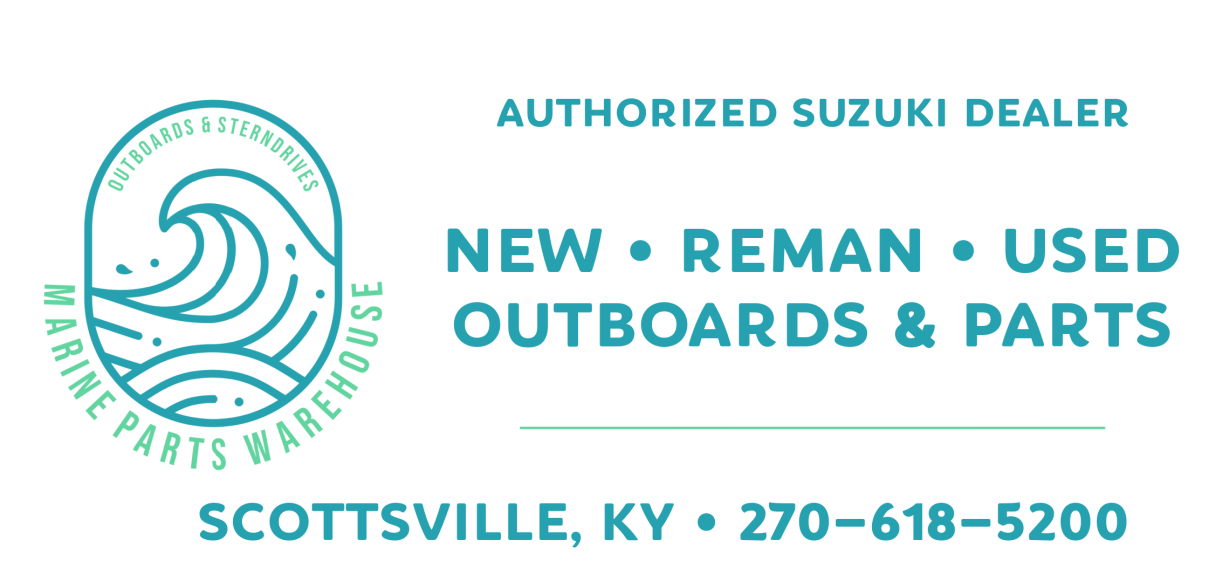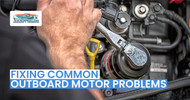Why Diesel Outboard Motor is Taking Over the Waters in 2025?
Diesel cars are everywhere, but surprisingly few diesel outboard engines are out in the water. This type of engine is typically found on big boats, popularly used on inboard and sterndrive engines. Diesel technology is better suited for bigger boats compared to those that hang on the transom.
The demand for improved fuel economy, lower CO2 emissions, and enhanced performance is driving the market for diesel outboard motors.
The commercial maritime industry, military boats, and public service boats are already benefiting from these engines. Now, recreational boat owners and anglers are also shifting towards them due to the advantages they offer over petrol outboards.
If you want to go down the diesel outboard motor path, the guide covers everything about how the diesel outboard engine works, its benefits, comparisons, and the best diesel outboard boat motor you can buy in 2025.
What Are Marine Diesel Engines?
A diesel outboard engine is a self-contained, external propulsion motor, comprising an engine, gearbox, and propeller, mounted on the back of the boat, similar to a petrol outboard engine.
Diesel has a higher energy density than petrol, which is a major factor in its better fuel economy and a big plus for longer distances, as optimised fuel consumption is a must. They also deliver higher torque, which is great for towing loads, relocating heavy ships, and operating in extreme marine conditions. Further, diesel is less combustible than petrol and lowers the risk of a fire.
That is why marine diesel outboards are deployed for commercial, long-range, and heavy-duty use, given that their strength, efficiency, and fuel safety make them the best option.
How Diesel Outboard Boat Engines Work?
Diesel outboard engines use lean-burn technology, which utilizes less fuel and more air to achieve the same level of performance as petrol engines, resulting in 30% to 35% greater fuel economy. It also means fewer emissions that meet stringent environmental regulations.
The power mechanism of the diesel engine works on the principle of compression ignition. Air is drawn into the combustion chamber and compressed to high pressure. Then, the fuel is injected directly into the chamber, where the compressed air is so hot that the fuel ignites immediately, creating an explosion which pushes the piston and generates power. Any spent gases are expelled from the cylinder, and the process repeats.
Benefits of Diesel Outboard Motor
Diesel outboard engines have long been popular with commercial boaters, and now recreational users are following suit.
- Longer Range: With lower fuel consumption, diesel engines increase the range of any boat. Many fishers and anglers have noted that the ability to travel an additional 50 to 100 miles can make a significant difference.
- Greater Torque: You don’t need acceleration to move large, heavy boats. The greater torque of diesel outboards easily propels the big boats and yachts across the ocean.
- Requires Less Maintenance: As diesel engines don’t work as hard to generate their output, their service intervals are comparatively extended compared to gas outboards of equivalent power. For example, OXE Marine recommends servicing after 200 hours of use, but most gasoline manufacturers recommend service after 100 hours.
- Environmentally-Friendly: Lower fuel consumption leads to reduced emissions. Moreover, many diesel outboard motors are certified to standards such as EPA Tier 3, IMO II, and RCD II.
Best Diesel Outboard Engines
Discover the top diesel outboard motors in the market, their features, and what makes them stand out from the rest. There aren't many options, but here are the best motors that will keep the fun going with better power and fuel efficiency.
Cox Marine V8 300

- Power Output: 300HP
- Max RPM: 4000
- Displacement: 4.4L (266 cu.in)
- Dry Weight: 393kg (866lbs)
The engine is designed with sustainable innovation in mind. The V8 diesel outboard is a fuel-efficient, eco-friendly outboard designed for maximum speed. This COX 300 diesel outboard motor offers 30% better fuel efficiency compared to its 300HP petrol counterpart.
Cox 300 is certified to the world’s leading emissions standards, including EPA Tier 3, IMO II, and RCD II. It confirms that engines meet stringent emission limits for NOx, hydrocarbons, and particulate matter, supporting cleaner operations
Cox Marine V8 300 is a powerful engine, designed for commercial, government, and recreational use. But it comes at a higher initial cost and weighs more than a similarly powered petrol/gasoline engine.
OXE 300

- Power Output: 300 HP
- Max RPM: 4200-4400
- Displacement: 3.0L (266 cu.in)
- Dry Weight: 395kg (870lbs)
This is the most powerful OXE engine, featuring a bi-turbo configuration that provides solid torque at the propeller. The Swedish engine not only offers great torque but also has better range, fuel economy, and a longer shelf life than its gasoline counterparts.
This engine boasts up to 46% lower fuel consumption compared to a 300HP gasoline engine. OXE diesel outboard motor delivers 945Nm torque at the propeller shaft, significantly more than comparable gasoline outboards, translating to strong bollard pulling power and quick acceleration.
The OXE 300 is an excellent engine for commercial tour operators, guide boat operators, and superyacht tenders. The diesel outboard motor sits horizontally and transfers the power through a belt system to a transmission and a belt that drives the lower shaft. The proprietary belt system eliminates vibration common to diesel engines and can absorb the torque.
How to Select the Best Diesel Outboard Engine in 2025?
Making the right choice is an important aspect of getting the best diesel outboard engine. A number of factors must be put into consideration, such as the specifications of various engines, to make sure that the model you select suits your needs. Effective choices also avoid issues, troubleshooting, and repair.
- Horsepower and Torque: Use the weight of your boat, the usage type, and the weights you intend to transport to determine the size of the engine. Commercial boats tend to require more horsepower and torque to support heavier loads.
- Fuel Consumption and Range: Diesel engines are very fuel effective, but do make a calculation for your boat's range needs and make sure the engine can provide the performance required over extended distances.
- Maintenance Requirements: Diesel engines do not need to be serviced as often, but sometimes may need more specialized servicing. The best choice is to go with a company that has a solid service network and good spare parts availability in your locality.
- Environmental Impact and Compliance Regulations: A good diesel outboard engine should satisfy emissions standards in your area. New diesel outboards are designed to meet strict emissions controls developed by Environmental Protection Agency (EPA) and the International Maritime Organization (IMO).
- Weight and Boat Compatibility: Diesel outboards are quite heavy; therefore, make sure your boat can handle the added weight. Check your boat's maximum transom weight rating and consider how the increased weight will impact balance and performance.
Petrol vs Diesel Outboard Motors: Which One’s Better?
When comparing diesel outboard engines to gasoline outboard engines, several factors must be considered, including fuel efficiency, performance, longevity, safety, cost, and suitability for specific types of boating.
|
Feature |
Diesel Outboard Motors |
Petrol (Gasoline) Outboard Motors |
|
Fuel Efficiency |
Very efficient, especially at low speeds |
Less efficient, better at high speeds |
|
Performance |
High torque and lower top speed |
Quick acceleration and higher top speed |
|
Durability & Longevity |
Built to last, ideal for heavy use |
Shorter lifespan, more frequent repairs |
|
Safety |
Less flammable and safer overall |
More flammable, higher fire risk |
|
Initial Cost |
Expensive |
Cheaper |
|
Environmental Impact |
Cleaner and lower fuel use and emission |
Cleaner emissions in 4-stroke but not so good in 2-strokes |
|
Maintenance |
Less often but costlier repairs |
Frequent but cheaper maintenance |
|
Best For |
Long-range cruising, commercial use, offshore operations, towing |
Short trips, recreational boating, lightweight craft needing speed and agility |
1. Fuel Efficiency
Diesels are more energy dense than gasoline, so they don’t need as much fuel to go the same distance. They consume less fuel, particularly at lower speeds and over long distances. That makes them well suited to the rigours of long-distance cruising or use as a workboat.
Petrol motors use too much fuel when idling or under a heavy load. However, above a certain rpm and in some situations, in smaller, lighter boats, these engines are somewhat efficient.
2. Performance
Diesel engines generate lots of torque at low RPMs, so they are strong and reliable when pushing a heavy boat or towing something behind you. They tend to lack the top-end speed and acceleration of petrol engines, though.
By comparison, petrol outboard engines are much more nimble and consistently faster away from idle through to wide open throttle. They are more maneuverable and seem to work better in smaller, lighter boats that want agility and speed.
3. Durability and Longevity
Diesel engines are also made to be particularly robust and can sometimes even outlast petrol engines. They are built to withstand high levels of wear and extended use, making them popular for commercial and heavy-duty applications. With proper maintenance mandatory, diesel engines can last much, much longer.
Petrol engines generally have shorter lives than diesel engines, mainly due to higher operating temperatures and speed. They are long-lasting and very reliable, but do require more maintenance & occasional repairs due to the higher usage.
4. Safety
Diesel is not as flammable as petrol, which makes the engines safer for potential fire risks. That is a great advantage for use on commercial boats, military ships, or offshore platforms where safety is paramount.
Petrol, on the other hand, is more volatile and dangerously flammable, causing a greater potential for fire. This is particularly problematic in confined spaces, such as motor compartments in boats. However, these dangers are now minimal thanks to advances in safety equipment and adroit management.
5. Cost
Diesel outboards are more expensive to purchase initially than petrol outboards, a consequence of their rugged nature and more complicated design. Mixed with up to two-thirds water, it costs more than the other products, but that can be amortized over the life of fuel-saving engines and fewer trips to the maintenance hangar.
Petrol outboard motors, on the other hand, tend to be cheaper to buy outright and can become more expensive over time if you frequently need to purchase petrol.
6. Environmental Impact
Diesel machines used to be more harmful to the environment as they emitted more particulate matter (PM) and nitrogen oxide (NOx). Still, improvements in diesel engine design have helped mitigate emissions. And, diesel engines are more efficient; they use less fuel in the first place and so produce less in the way of greenhouse gases.
Today's four-stroke petrol engines are already relatively clean in terms of emissions, in many cases fulfilling strict environmental requirements. But two-stroke petrol engines are less green. They are operating, causing the engine to smoke and to pollute.
7. Maintenance
The diesel outboards also have a rugged and time-tested design that usually requires less investment and time for servicing and repairs. But when they do require work, parts and labor are costly, as the diesel engine is a specialized object.
The cost of maintaining gasoline outboard engines, especially the smaller ones, is relatively cheap, given that parts are available. And, their no-frills design means that you can also do-it-yourself. But they do need to be maintained more often, especially down in scum-filled marine habitats.
How to Maintain a Diesel Outboard Motor
Diesel outboards are robust little motors that need very little in the way of maintenance to keep running in tiptop shape. Here is how you can get the best performance from your diesel engine:
- Change the Oil and Filter: Oil changes are just as important for diesel engines as they are for other engines. The oil keeps the engine lubricated, preventing it from being worn out. We suggest changing the oil and the filter every 100 hours of usage or once per year. In extreme conditions, you might have to do it more frequently.
- Proper Fuel Management: As part and parcel of diesel engine upkeep, you need to use the proper type of fuel. It treats and conditions the fuel system and improves performance and life. Ensure that you are using only premium quality diesel as per the manufacturer’s recommendation.
- Cooling System Maintenance: Inspect coolant volume, clean seawater strainers, and replace the seawater pump impeller as required.
- Fuel System Care: Periodically check and replace fuel filters, look for leaks in fuel lines, and assure that the fuel system is properly bled after replacing filters.
Conclusion
There is a reason more boaters are switching to Diesel outboard engines as they are sturdy, efficient, and built to last. They are easier on fuel, more reliable over time, and save you money in the long run. Brands like OXE and CXO are leading the way, and they really deliver when it comes to performance.
If you are looking to buy, going for a new engine is great, but a used one can be just as good if you know what to look for. Just make sure you keep up with maintenance and always use clean, good-quality fuel to keep things running smoothly.
At OBParts, we offer both new and used outboard parts to support your engine's needs, helping you stay on the water, longer and stronger.
Posted by Brian Whiteside


